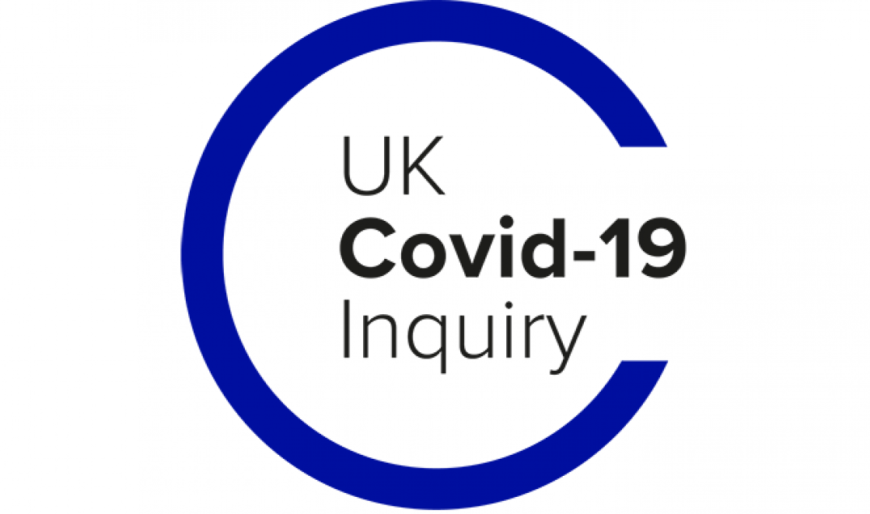Covid Public Inquiry: Rishi Sunak has “serious questions to answer”, says TUC
PM must “come clean” about why as Chancellor he ignored expert warnings and provided inadequate support for people to self-isolate

The TUC has said that Rishi Sunak has “serious questions to answer” in the second module of the Covid Public Inquiry.
The union body says the prime minister “must come clean” about why as Chancellor he failed to support people to self-isolate during the pandemic.
The call comes as TUC Assistant General Secretary Kate Bell gives evidence to the inquiry later today.
The TUC says Mr Sunak and other government officials must be fully transparent about the decisions taken during the pandemic and not play political games.
The union body says the Prime Minister – who is expected to give evidence during this module – has to shed light on the following questions:
- Why didn’t he provide sick pay people at a level people could afford to live on?
The UK went into the pandemic with the lowest rate of statutory sick pay in the OECD.
At just £94 a week – the average worker faced a £418 drop in earnings if they had to self-isolate on SSP.
A quarter (23%) of the UK workforce had to rely on SSP if they needed to self-isolate during the pandemic – a number that rose to three-in-ten (31%) for the lowest paid.
But despite mounting evidence that people couldn’t afford to self-isolate, the Treasury refused to raise sick pay to a ‘liveable rate’ for the entirety of the pandemic.
The TUC says the lack of decent sick pay massively undermined the UK’s ability to deal with the pandemic.
- Why didn’t the PM make sick pay available for all?
The government was warned at the start of the pandemic that two million workers had no sick pay protection at all.
Yet as Chancellor Rishi Sunak refused to abolish the lower-earnings threshold leaving these workers – the majority of whom were low-paid women – with no access to statutory sick pay at all.
- Why was the government’s self-isolation scheme so inadequate?
The government belatedly introduced a self-isolation support scheme that would allow low-paid workers to claim a £500 lump sum if they were unable to work.
However, this scheme was poorly resourced with two-thirds of low-paid workers who did apply for support from the scheme turned down.
- Why did Rishi Sunak spend more on ‘Eat Out to Help Out’ than on helping people to self-isolate?
Freedom of Information requests show that Rishi Sunak spent more than double on ‘Eat Out to Help Out’ than he did funding the inadequate self-isolation scheme.
Over £800m was spent on ‘East Out to Help Out’ which lasted just over a month.
By contrast, just £385m was spent on the self-isolation support scheme in total throughout its existence (around 18 months).
- Why didn’t the Treasury act on warnings from senior officials?
People not being able to afford to self-isolate massively undermined the UK’s public health effort.
The Covid Public Inquiry heard on Wednesday that Chief Medical Officer Chris Whitty called in May of 2020 for “an accessible offer of financial support” to help reduce the risk of “no adherence” to Covid rules.
But according to Chief Scientific Officer Patrick Vallance’s diary, Rishi Sunak was responsible for “blocking all notion of paying people to isolate despite all the evidence that this will be needed.”
Lessons not learnt
The TUC says rather than not learning the lessons of the pandemic, ministers have doubled down on their mistakes.
In late March 2022 (with the expiration of the Coronavirus Act) the government removed access to sick pay from day one. Workers once again have to wait three days (until day four) before they can claim Statutory Sick Pay.
And despite it costing a relatively small amount of money, ministers are still refusing to remove the lower-earnings threshold which excluded nearly two million workers from access to Statutory Sick Pay during the pandemic.
TUC Assistant General Secretary Kate Bell gave evidence to the Covid Public Inquiry on Friday morning, the 6th October.
Speaking ahead of her evidence session, Kate Bell said:
“Rishi Sunak has serious questions to answer.
The Treasury’s refusal to provide decent sick pay for all massively undermined the UK’s public health effort.
It pushed up infection rates, put a huge strain on our public services and ballooned the cost of Test and Trace.
The Prime Minister must come clean about why these decisions were taken – especially when senior government advisers were warning that people couldn’t afford to stay home when sick.
And he must explain why he saw fit to spend more on ‘Eat Out to Help Out’ than on helping people to self-isolate.
The failure to provide proper financial support was an act of self-sabotage that left millions brutally exposed to the pandemic.”
On the need to learn lessons for the future, Kate added:
“It is vital that we learn the lessons of what went wrong.
Never again must the UK be in a situation where workers are plunged into financial hardship for following public health advice.
It beggars belief that despite everything working people have been through, Rishi Sunak’s government are still refusing to fix Britain’s broken sick pay system.”




